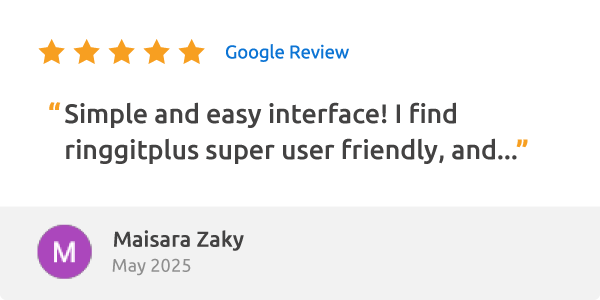Frequently Asked Questions About Alzheimer's Disease
Symptoms such as memory loss, difficulty with thinking, problem-solving or language is known as Dementia. And about 50%-60% of all cases of dementia is caused by Alzheimer’s disease, known in some places as “The Long Goodbye”, as the illness normally stretches to over 10 or even 20 years.
It certainly doesn't make it any easy watching loved ones slip into a sympathetic state especially when there is no cure to the disease, even in modern times. Let's learn more about Alzheimer's and what Critical Illness policies out there can do to help you take it all in good stride should the unfortunate happen.
#What is Alzheimer's Disease?

Alzheimer’s Disease is a condition in which nerve cells in the brain die, therefore making it difficult for brain signals to be transmitted properly. The death of the nerve cells occurs gradually over a period of years, and most people don’t take heed until the symptoms or signs become obvious.
During the course of the disease, nerve cells die in particular regions of the brain. The brain then shrinks as gaps develop in parts of the brain responsible for storing and retrieving new information. This affects a person’s ability to remember, speak, think and even make decisions.
Causes of Alzheimer’s Disease
No one really understands what causes Alzheimer’s Disease, and it has been a topic of interest among medical and health care professionals for many years. Advancing age and a family history of dementia increases one’s risk of developing it.
Based on statistics, the number of people diagnosed with Alzheimer’s disease doubles every 5 years beyond the age of 65. For persons above the age of 85, one in 4 can develop this disease, roughly 25% of the population of that age.
What are the symptoms of Alzheimer’s Disease?
Common symptoms in people with Alzheimer’s disease include:
- Difficulty remembering things or learning new information.
- Often get lost when on their own, and may not remember where they are or how they got there.
- They often misplace things, and can’t remember they put the things they use everyday.
- Difficulty performing daily tasks, such as eating, dressing up and grooming.
- They could become unusually angry, irritable, restless, quiet, or could even become confused, paranoid or fearful.
- Decreased judgement. They could go to the store wearing their pyjamas, or leave the house without an umbrella on a rainy day.
- Difficulty understanding simple commands or directions.
- Can’t recall words, name objects or understand the meaning of common words.
- Can’t arrange items in a certain order or recognise shapes.
How is Alzheimer’s Disease Diagnosed?

If you think you or your loved one has signs of Alzheimer’s, you should see a doctor to know for sure. The doctor may start with a physical exam and ask questions about past and current health. This includes:
- Symptoms - whether you have any trouble with everyday tasks.
- Existing or past medical conditions.
- Medications you’re currently taking.
- Personal history, like living conditions, employment, important life events.
- Your mental health, whether you have any issues such as depression.
- Family history, especially regarding any illnesses.
The doctor may also run some tests to check on your problem solving skills, attention span, counting skills and memory. Some of the more advanced checks include CT Scan and Magnetic Resonance Imaging (MRI).
Treatment for Alzheimer’s Disease
At the moment, there is no cure for Alzheimer’s disease but drug and non-drug treatments may help with some of the symptoms, especially in terms of behaviour. Alternative treatments such as psychosocial interventions may also help to reduce some specific problematic behaviours.
However, supportive psychotherapy has received little to no formal scientific study, plus there has yet to be any scientific evidence to support the effectiveness of these therapies.
Since Alzheimer’s has no cure and it gradually renders persons incapable of tending to their own needs, the most realistic way to manage the disease is via care-giving over the course of the disease.
During the early stages, modifications to the living environment may increase the safety of the patient and reduce the burden on caretakers. If eating becomes difficult, then food will need to be prepared in smaller pieces or even pureed.
As the disease progresses, some medical issues can appear, such as oral and dental infections, malnutrition, hygiene and breathing problems. Good management can prevent such complications.
During the final stages of the disease, treatment is focused on relieving discomfort until death, usually with the help of a hospice.
Prognosis – What happens after one has been diagnosed with Alzheimer’s Disease

Life expectancy of people with the disease is reduced, with the average of approximately 6 years. This is due to the decrease of functional level, increased number of falls, as well as other coincident diseases such as heart problems or diabetes.
Eventually a person with Alzheimer’s will need complete care. Even if the person has no other serious illnesses, the loss of brain function itself will eventually cause death.
Which insurance policies cover Alzheimer’s Disease?
Most Critical Illness insurance cover Alzheimer's Disease or Irreversible Organic Degenerative Brain Disorders. For most plans in general, the sum assured is payable if the policyholder is diagnosed with Alzheimer’s as defined in your policy contract. Apart from that, upon diagnosis of the critical illness, all future premiums will be waived until death.
Thinking of getting a critical illness insurance plan? Checkout some of the best protection plans right here on RinggitPlus!


























